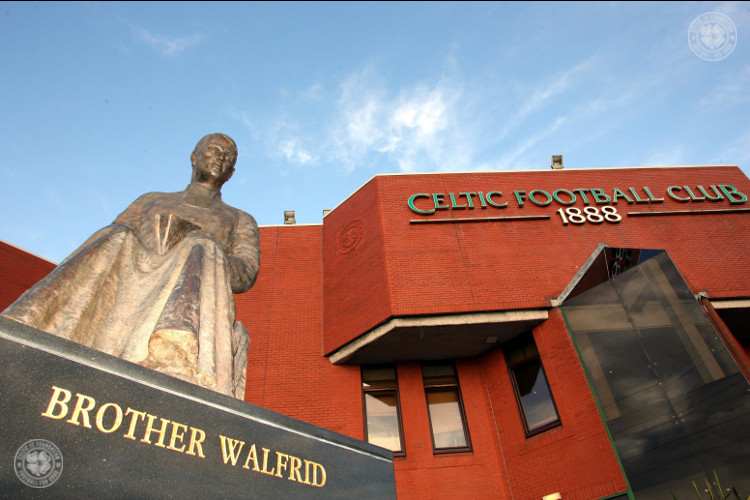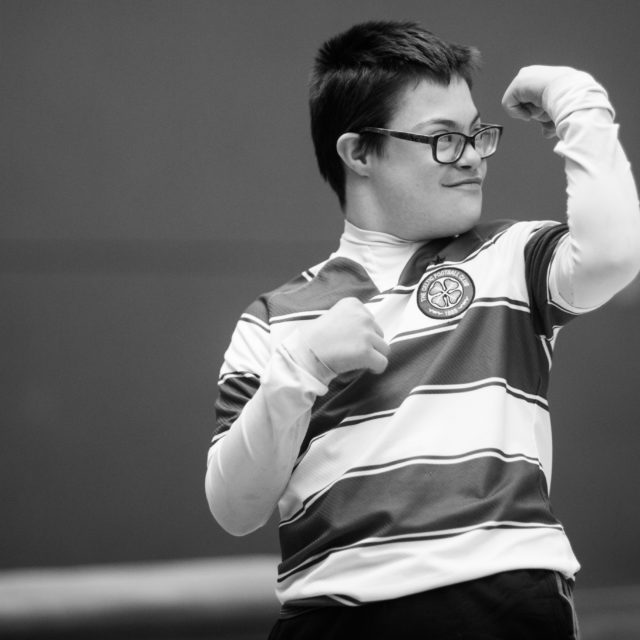
‘THERE would be no Celtic but for Brother Walfrid’. It seems an easy statement to make while the assumption is obvious: but then again, possibly not?
There are many famous football clubs around the country and elsewhere in the world. What makes them famous? What is their attraction? How can a football club acquire central importance in the lives of so many people? In addition, who are these people that have a passion for a football club? What makes them tick? What is the nature of their support for football and for a particular football club?
As some people will observe a club’s success in competitions or in the design and colour of its kit can provoke support. Sometimes fans can be ‘sold’ on a club because of the huge crowds and publicity it attracts and because its stadium is atmospheric and eminent and people like to be part of that kind of experience.
Certainly celebrated players also draw our attention and we can all remember numerous footballers that have helped instigate and stimulate our liking for a club.
Also meaningful is the idea of locality and a team representing a village, town or city. In addition, club’s can be supported by a community that is differently constituted, one that is not defined simply by geography. All of these factors help explain allegiances to football clubs and provides us with the raw material to begin to understand the phenomenon that is football fandom.
In addition, television today is an important medium and allows us to access a number of ‘experiences’ via clubs and players that would have been impossible in the past. Football fandom can be ephemeral, transient and sometimes almost off the wall. All of these questions and issues can evoke reflection on the real meaning of football. Not only the real meaning of football, but these issues raise questions about the kind of people who find meaning in football as well as the nature of that meaning. What place then does football, or more specifically what place does a football club, play in our lives?
Of course there are other sides to the meaningfulness of football and much of it turns many people away from the ‘beautiful game’. The capitalist nature of the game and its concomitant and copious amounts of money, greed, sex, and even alcohol and drug abuse: all in the face of massive poverty. Mercenary players and managers, violence and hooliganism, racism and sectarianism, chauvinistic nationalism and narrow mindedness, selfishness, deceit, exploitation and the sport being used, utilised or self-inflicted as an opium: an opium that can drain the life from us and divert us from what matters and what lasts in life.
‘What truly matters’ can be seen at the core of any question about the meaningfulness of football: a game after all where eleven men fight for possession of a ball to score more goals than the opposition.
Although Brother Walfrid did not look ahead and realise how football would evolve in the 20th and 21st centuries he undoubtedly had a vision of what Celtic should be like. His vision was a timeless one that emanated from his religious and cultural background.
Walfrid clearly had a vision of a Club that would be a standard bearer, something to look to in times of despair and in times of happiness. Indeed, a club that would incite contentment and cheerfulness, a club that would be meaningful beyond the simplicity of the game itself.
Picture above: Celtic supporters were joined by former Celts and Club representatives today at Brother Walfrid’s grave in Dumfries to pay tribute to our Founding Father.
On reflection and with deeper consideration, one can see that for most Celtic supporters, without Brother Walfrid and others like him there would be little meaning in Celtic beyond what can be found in most football clubs across the globe.
Brother Walfrid provides the foundation bloc for all that is Celtic: that is, all that is the Club and all that constitutes the supporters and Celtic culture. He is not only central to the existence of Celtic but also to the very meaning of the Club. He has a totemic value and he represents and encapsulates the ideals that are embodied in Celtic. Brother Walfrid reminds everyone of what Celtic is about.
The real value and meaning of being a supporter of Celtic goes beyond the football pitch and stadium.
From time to time individuals and groups of people may embarrass or besmirch the name of the Club, its history and identity, they may try to corrupt the meaning and nature of the institution and its followers, they may attempt to fashion it in their own image or in an image more fitting for the times.
However, the essence of Celtic remains because those who know the club, those who feel for the club, those for whom the club was founded and anticipated for, those who not only know the history but can see the history in a context beyond the football field and who feel it as a living part of their lives: they continue the story and narrative that is Celtic Football Club. Celtic belongs to them.
When Celtic supporters reflect on their love of the Club, knowledge and understanding will always throw up the figure of Andrew Kerins from Ballymote, County Sligo. For most Celtic supporters Walfrid’s journey to Scotland has mirrored their own as the offspring of refugees in a strange and frequently hostile land.
No matter where they are today, the vast majority of Celtic supporters share Walfrid’s roots and his cultural and religious heritage as part of the multi-generational Irish immigrant community of the west of Scotland and beyond. There are few football clubs that can come close in terms of the symbiosis that exists between the Club and the supporters it was founded by and for.
The erection of a monument to Walfrid is a reminder of what makes Celtic special and unique to many people. Remembering Walfrid is a statement that Celtic’s value and meaning comes from its Catholic, Irish and Charitable identities. Equally too, a club never exclusive on the basis of religion, ethnicity or national identity, for that has never been the Celtic way.
To be exclusive would be a denial of Walfrid, his Christian love and charity and his capacity to extend the hand of friendship to all; to become a player, an employee or supporter of the club, irrespective of colour, creed or nationality: indeed, the club can claim to embrace such diversity in an equally diverse society.
The importance of Walfrid is that in him and in all he was, stood for and represented, Celtic and its support finds uniqueness and meaning.
In Celtic FC the Irish diasporic community has established a means to express itself, to celebrate, to remember, to be proud, and to acquire identification where recognition has been frequently obscured and denied. It is an institution that holds its hands out to welcome anyone who wants to be ‘Celtic-minded’, a phrase that embraces all those who have Celtic’s interests at heart and who have intrinsic, or who develop, strong feelings and bonds for the club.
Celtic has never been an ephemeral experience – at least not for those thousands and their offspring that Walfrid and others founded the Club for and who see it in its historic cultural and spiritual terms. Celtic’s uniqueness began with the mission of Brother Walfrid and has been represented by many ‘Celtic people’ ever since.
Brother Walfrid remains at the core of Celtic’s meaningfulness while he is an indelible reminder of what Celtic is all about.


